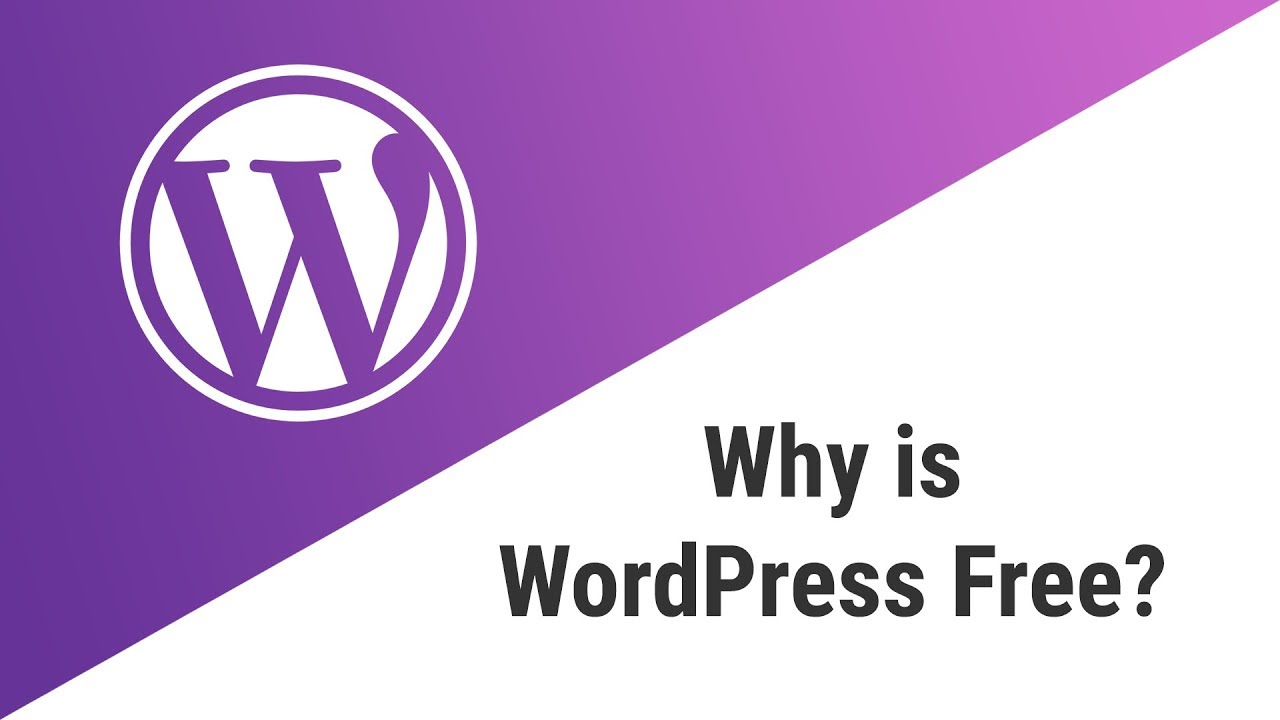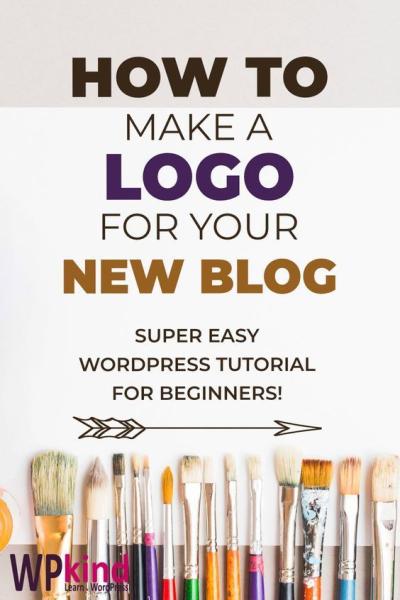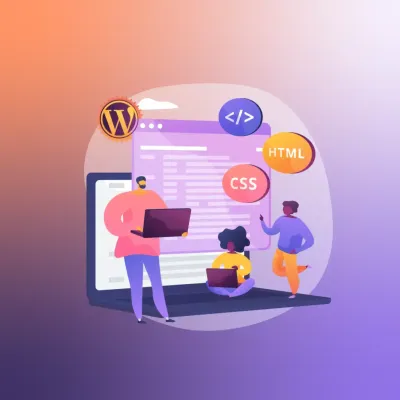When you hear about building a website or starting a blog, chances are, WordPress comes up pretty quickly. It’s like the Swiss Army knife of website creation—versatile, user-friendly, and widely used. With over 40% of all websites on the internet running on WordPress, it’s clear why so many people and businesses love it. Whether you’re a beginner dreaming of a personal blog or a large company needing a complex online store,
Understanding What Is Free in WordPress
At first glance, WordPress seems like a free gift to anyone who wants to build a website. The core software itself is open-source, which means you can download, install, and customize it without paying a penny. This openness has created a vibrant community of developers and users who contribute themes, plugins, and support—all for free. But, as with many things in life, it’s a bit more nuanced.
Here’s what you get for free with WordPress:
- Core Software: The main platform that powers your website, including essential features for creating and managing content.
- Themes: Many free themes are available, allowing you to change the look and feel of your site without extra costs.
- Plugins: A vast library of free plugins helps you add functionalities—like contact forms, SEO tools, or social media sharing buttons.
However, there are some important caveats. While the software, themes, and many plugins are free, you’ll often need to pay for other essentials, such as:
- Domain Name: Your website’s address (like www.yoursite.com) isn’t free, usually costing around $10–$20 per year.
- Web Hosting: To make your site accessible online, you need hosting, which can range from a few dollars a month to hundreds, depending on your needs.
- Premium Themes and Plugins: While free options exist, premium themes and plugins can offer more features, better support, and unique designs—but they come at a cost.
- Custom Development and Maintenance: If you want a highly customized website, hiring developers or maintaining your site might add to your expenses.
In essence, WordPress provides a powerful foundation that’s free to use, but turning that foundation into a fully functional, professional website often involves some investment. Understanding these distinctions helps you plan better and avoid surprises down the road.
3. Costs Associated with Using WordPress
So, you’ve probably heard that WordPress is free and wonder if that’s really the case. Well, the core software itself is open-source and absolutely free to download, install, and use. That’s a big part of its popularity—anyone can start a website without paying a licensing fee. But, as with many things, there are some costs involved once you dive deeper.
First off, while WordPress.org (the self-hosted version) is free, you’ll need a few essentials to get your website up and running:
- Domain Name: This is your website’s address (like www.yourwebsite.com). Domain prices typically range from $10 to $20 per year, depending on the registrar and the domain extension you choose.
- Hosting: Hosting is where your website lives online. You can find shared hosting plans starting at around $3 to $10 per month, which is perfect for beginners. As your site grows, you might consider more robust options like VPS or dedicated hosting, which cost more but offer better performance.
- Themes and Plugins: While there are many free themes and plugins, premium options can give your site a professional look and extra features. Premium themes usually range from $30 to $100, and plugins can be free or cost $20–$100 or more, depending on what they do.
And don’t forget about maintenance costs—like updating software, backing up your site, or hiring professionals if needed. These aren’t always necessary, but they can add to your overall expenses.
In summary, although WordPress itself is free, creating a fully functional website involves some investments. But even with these costs, many find it to be an affordable way to build a professional website compared to other proprietary platforms.
4. Additional Expenses to Consider When Setting Up a WordPress Site
Beyond the basic costs, there are a few more expenses that can pop up when setting up your WordPress site. It’s good to be aware of these so you can budget accordingly and avoid surprises down the road.
1. Website Design and Customization: If you want a website that looks unique and professional, you might consider hiring a web designer or developer. Custom designs can range from a few hundred to several thousand dollars, depending on complexity.
2. Premium Themes and Plugins: As mentioned earlier, free options exist, but premium themes and plugins can significantly enhance your site’s appearance and functionality. These are one-time or annual costs that can add up, but they’re often worth the investment.
| Expense Type | Typical Cost |
|---|---|
| Premium Theme | $30–$100 |
| Premium Plugins | $20–$100+ each |
| Custom Design/Development | $500–$5000+ |
| SSL Certificate (Security) | Free (Let’s Encrypt) to $100+ |
| Marketing & SEO Tools | Varies, some free options available |
3. Security Measures: Protecting your website from hackers and malware is crucial. While some security features are free, you might opt for premium security plugins or services that come with a subscription fee.
4. Marketing & Advertising: To attract visitors, you might want to invest in SEO tools, social media advertising, or content marketing. These costs vary widely based on your goals.
Finally, don’t forget ongoing costs like regular backups, software updates, and potential troubleshooting. While WordPress is a budget-friendly option, being aware of these potential expenses helps ensure your website’s success without unexpected financial surprises.
5. Benefits of Using the Free Core Features of WordPress
If you’re just getting started with your website or blog, one of the biggest perks of WordPress is that its core features are completely free. This gives you a fantastic foundation to build upon without worrying about upfront costs. Let’s explore some of the key benefits:
- Cost-Effective: Since the core platform is free, you can set up a professional-looking website without spending a dime. This is especially helpful if you’re a small business, a hobbyist, or just testing the waters.
- Easy to Use: WordPress was built with user-friendliness in mind. Its intuitive dashboard makes it simple to create pages, blog posts, and manage your content without needing coding skills.
- Extensive Customization: The core features include a wide variety of customizable options, such as selecting different themes, adjusting layouts, and adding media content. You can change the look and feel of your site easily.
- Strong Community Support: With millions of users worldwide, WordPress has a vibrant community. This means you can find plenty of tutorials, forums, and resources to help troubleshoot and improve your site.
- Flexibility and Scalability: Whether you’re running a small blog or a large e-commerce site, the core features can handle your needs. You can always expand your site’s capabilities by adding plugins or custom code later on.
All these benefits make the free core features of WordPress a smart choice for many users. You get a reliable, flexible, and professional platform without the financial commitment. Of course, as your website grows, you might want to explore additional tools, but starting with the free options is a great way to test and learn the ropes.
6. Premium Themes and Plugins: Are They Necessary?
Now, you might be wondering — do you really need to spend money on premium themes and plugins? The short answer is: not necessarily. But it depends on what you’re aiming for with your website. Let’s break it down:
In the WordPress ecosystem, there’s a wide range of free themes and plugins that can cover most basic needs. These are often sufficient for personal blogs, small business websites, or informational sites. They are regularly updated and supported by the community or developers. Here are some factors to consider:
| Aspect | Free Themes & Plugins | Premium Themes & Plugins |
|---|---|---|
| Cost | Absolutely free | Paid, usually one-time or subscription-based |
| Design & Features | Standard options, often customizable | Advanced features, unique designs, dedicated support |
| Support & Updates | Community support, updates depend on developers | Priority support, regular updates, detailed documentation |
| Customization | Good for basic needs | More extensive options, often with premium plugins included |
So, when do premium options become worth it? If you’re looking for:
- Unique Design: Stand out with a professional, custom look.
- Advanced Functionality: Features like e-commerce, booking systems, or membership portals often require premium plugins.
- Dedicated Support: Quick help when things go wrong can save you headaches and time.
- Time Savings: Premium themes often come with pre-built layouts and features that speed up your setup process.
In summary, premium themes and plugins are not absolutely necessary to run a successful website, especially if you’re just starting out. However, if your site needs to look more polished, function more seamlessly, or you want dedicated support, investing in premium options can be a worthwhile decision. Ultimately, it’s about balancing your budget, goals, and the level of professionalism you want to achieve.
7. Hosting Costs and Other Hidden Expenses
When you hear that WordPress itself is free, it’s easy to assume that building a website on this platform will also be affordable, if not completely free. However, there are some hidden costs that often catch new users off guard. Let’s dive into the details so you know exactly what to expect.
Hosting Costs are probably the most significant expense. While WordPress.org is free, you need a web hosting provider to make your site accessible online. Hosting plans can range from as low as $3–$10 per month for shared hosting to hundreds of dollars a month for dedicated or managed WordPress hosting. The type of hosting you choose will depend on your website’s size, traffic, and performance needs.
In addition to hosting, you might need to pay for:
- Domain Name: Usually around $10–$20 per year, though premium domains can cost much more.
- Premium Themes and Plugins: While there are many free options, premium themes and plugins often come with costs ranging from $20 to several hundred dollars. They can add features, improve design, and provide better support.
- SSL Certificates: Many hosts include free SSL certificates nowadays, but some premium certificates can cost $50–$200 annually.
Beyond these, there are other “hidden” expenses to keep in mind:
- Maintenance and Security: Keeping your site secure and updated may require premium security plugins or services, which can add to your costs.
- Design and Development: If you’re not comfortable customizing themes or building features yourself, you might need to hire developers or designers.
- Marketing and SEO: To grow your website, you might invest in SEO tools, advertising, or content creation services.
All these costs can add up, so it’s wise to budget accordingly. While WordPress itself remains free, building and maintaining a professional, secure, and high-performing website involves some investment. Think of it as buying a car—you might get the vehicle for a good price, but fuel, maintenance, insurance, and accessories are ongoing costs to consider.
8. Is WordPress Still a Cost-Effective Option for Website Creation?
Absolutely, and here’s why: despite the hidden costs we just discussed, WordPress remains one of the most cost-effective solutions for creating a website—especially when you consider its flexibility, scalability, and the wealth of resources available.
Let’s break down why WordPress offers good value:
1. Free Core Software
The WordPress.org platform itself is open-source and free to download and use. This means you’re not paying licensing fees just to get started. You can install it on your hosting account, choose from thousands of free themes, and use many free plugins to extend functionality.
2. Wide Range of Free Themes and Plugins
The WordPress ecosystem boasts thousands of free themes and plugins. Whether you need a simple blog, a portfolio site, or an e-commerce store, there are free options that can meet your needs without additional costs.
3. Flexible and Scalable
As your website grows, WordPress can grow with you. You can upgrade your hosting plan, add premium features, and customize your site easily. This scalability means you don’t need to switch platforms later, saving you time and money in the long run.
4. Large Community and Support
If you run into issues or need help, the vast WordPress community is a huge advantage. Many tutorials, forums, and guides are available for free, reducing the need for expensive support services.
5. Cost-Effective Hosting Options
The availability of affordable hosting providers means you can start small and upgrade as needed. Good shared hosting options are very budget-friendly, often under $10 a month, making it accessible for small businesses, bloggers, and startups.
In summary, while there are some costs involved in launching and maintaining a WordPress website, the overall investment is typically lower compared to proprietary platforms or custom-built websites. It provides a great balance between affordability and functionality, making it a smart choice for many users.
So, if you’re wondering whether WordPress is still a cost-effective option, the answer is a resounding yes—especially when you plan carefully, choose the right hosting, and stick to essential features. With a little budgeting and some DIY effort, you can create a professional website without breaking the bank.
Conclusion: Assessing the True Cost of Using WordPress
While WordPress itself is a free and open-source platform, understanding the full scope of costs involved is essential for making an informed decision. The core software can be downloaded and used at no charge, but ongoing expenses can arise from various sources. For instance, domain registration typically costs around $10–$15 per year, and hosting services vary widely depending on the provider and plan—ranging from affordable shared hosting at approximately $3–$10 monthly to more robust options like managed WordPress hosting, which can be $20 or more per month.
Moreover, premium themes and plugins often come with one-time or recurring fees, which can significantly enhance your website’s functionality and appearance. The table below summarizes typical costs:
| Cost Category | Average Cost |
|---|---|
| Domain Name | $10–$15/year |
| Hosting | $3–$50/month |
| Premium Themes | $30–$100 (one-time) |
| Premium Plugins | $20–$100+ (per plugin) |
| Development & Maintenance | Variable (if outsourcing) |
In conclusion, while WordPress offers a cost-effective foundation for building websites, the total investment depends on your specific needs, choices, and the level of customization desired. Carefully considering these factors will help you determine whether WordPress remains an affordable solution for your online presence.



